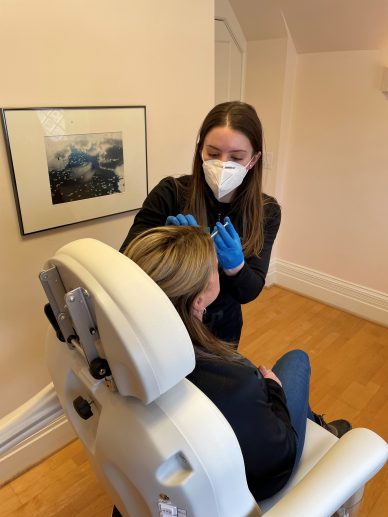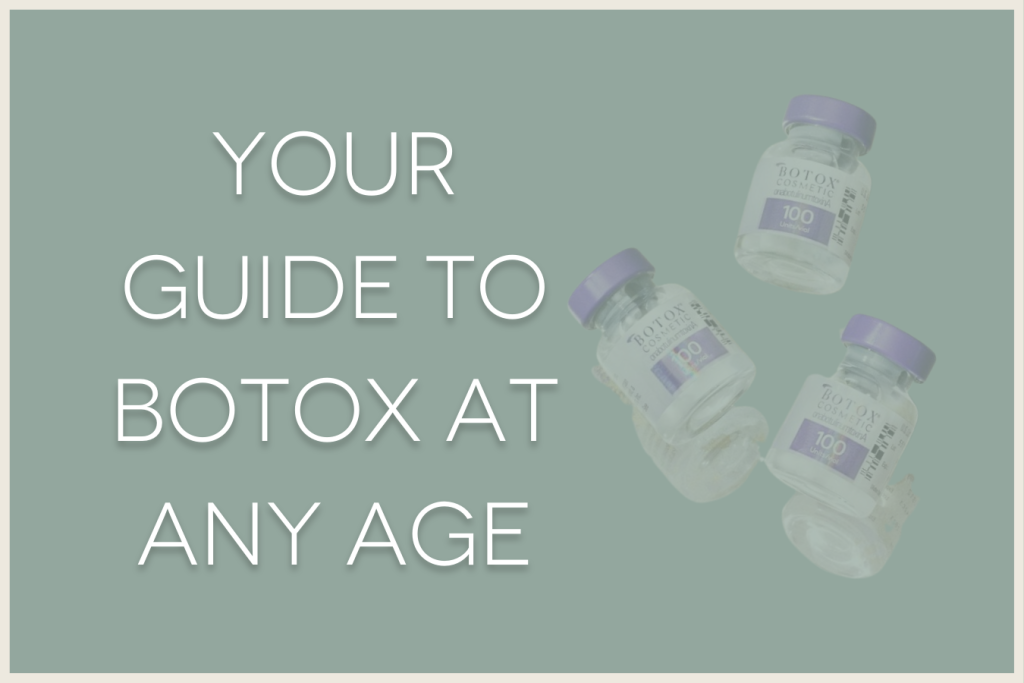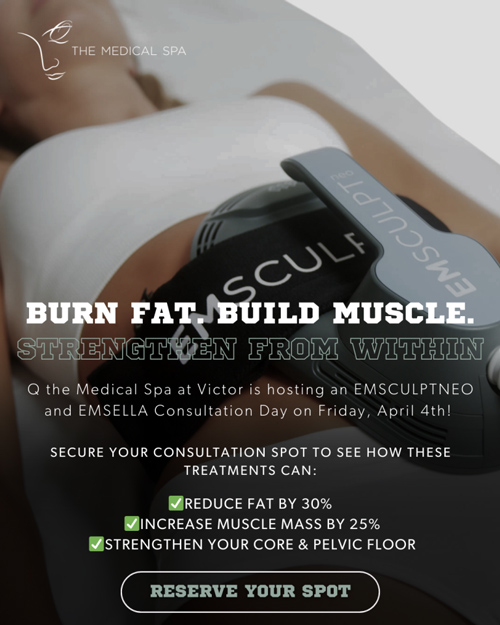-by Geena Lawatsch, RN, BSN
Botox is a trigger word that is thrown around the beauty and paparazzi industry, but it is sometimes also used as a general term to mean “so-and-so had cosmetic work done.” Let’s clear the air; what on earth is Botox? “Botox” is a highly-marketed brand name for a form of Botulinum Toxin. Clever, right?
Botulinum Toxin is a purified protein that is derived from the bacteria that causes the disease, botulism. This purified protein acts directly on the muscle fibers that cause your facial expressions to occur, therefore blocking the chemical signals that tell them to contract. This relaxes the muscles in the treated area and as a result, reduces the appearance of wrinkles. Botox has been FDA-approved for use since 2002, and it is very safe and effective when used as directed.
Common Questions about Botox
Before making the investment of a Botox treatment, it is important to have all of your questions answered. Some of the most commonly asked ones include:
Q: How long does it take to see Botox results?
Results from Botox are not immediate, but they don’t take long either. Botox fully kicks in 2 weeks after treatment.
Q: How many units of Botox do I need? How much Botox is needed for forehead lines? How many units of Botox for frown lines? How many units for crow’s feet?
The amount of Botox, or the number of units, that each individual needs for different areas (forehead lines, crow’s feet, frown lines between the eyebrows) varies due to a few factors, including: the size of the area treated, the amount of movement in that area, and how deep the lines and wrinkles are. There is no one-size-fits-all approach to treating patients with Botox (and be warned if a facility or article claims this!).
Q: How long does Botox last?
The neurotransmitters that are blocked by Botox only stay blocked for a temporary amount of time. Once the Botox has fully taken effect, your body begins to regenerate new neurotransmitters that override the toxin. This occurs little by little for the next 2-4 months. Each patient regenerates new neurotransmitters at different rates, so the longevity of Botox varies. If a patient has an active lifestyle, this can cause the Botox to wear off quicker.
To maintain the visible results of Botox, we recommend treatments every 3-4 months for all ages, but no sooner than 90 days from the initial treatment.

Q: What age do you start getting Botox?
We see patients as young as their 20s for Botox. There are ways to treat patients conservatively with Botox, say if a patient sees fine lines starting to form in their 20s and 30s. Each individual is different, so whether Botox is appropriate for you in your 20s or not will be best determined at your consultation appointment with your provider.
Q: What is preventative Botox and does it work?
Preventative Botox is Botox that is done before deep lines and wrinkles remain visible at rest. It can lessen the severity of those lines and wrinkles down the road as that movement is restricted and lessened.
Q: How often should you get Botox in your 30s? 40s? 50s and beyond?
For those between 30 and 70, it is usually beneficial to treat with a bigger, therapeutic dose as those muscle groups have gotten stronger with each decade that goes by. With every patient, it is important that your provider assesses your individual face in detail. There can be asymmetries, scars, or genetic predispositions that need to be considered before treating those areas with a toxin.
The frequency of Botox does not change with age, but again depends on how quickly the body regenerates new neurotransmitters, which causes the effect to wear off. We would still recommend treatment every 3 to 4 months.
Maintaining Youthful Results
Botox treatments yield even better results when paired with a medical grade, corrective skincare regimen. Retinols, chemical peels, hydrating serums, and SPF 30+ all play a part in increasing cell turnover and protecting skin from aging so that you can maintain a healthy, youthful glow!
If you are interested in learning more about Botox, or to explore our skincare products and procedures, call 585.244.1010.







Leave a Reply